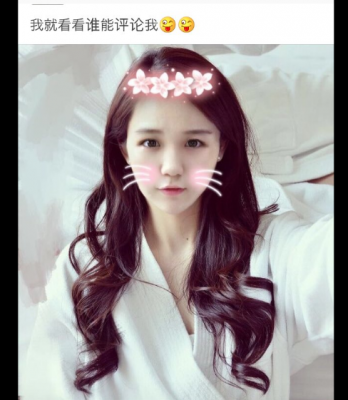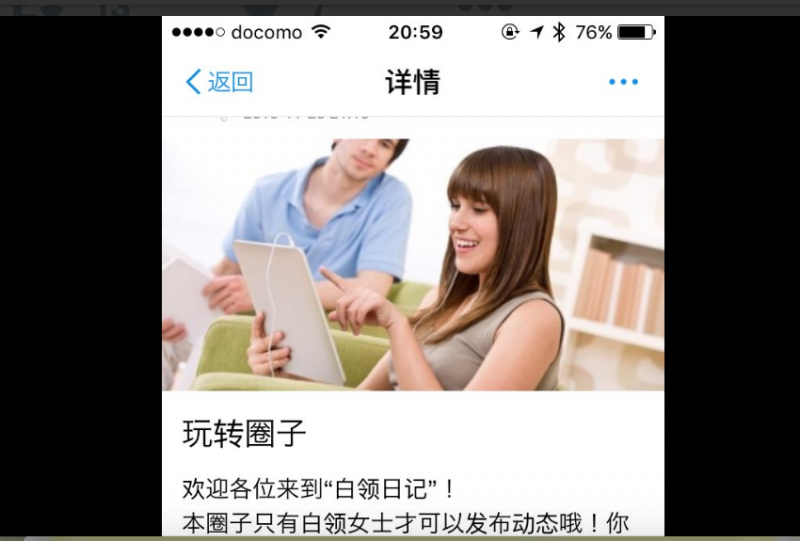Alipay, China’s biggest online payment system, launched a social networking feature last week on November 24, called “Circles”. In distinction from other social media platforms, the new app is built around the users’ real identity, social status and online payment record, which is assessed by Sesame Credit – an app tracking users’ online activities.
Alipay, which operates under the Ant Financial Services Group affiliated with e-commerce giant Alibaba Group Holding, has 450 million registered users. The newly launched social networking app has about 100 circles. These circles are groupings of people with specific interest, consumption behaviors and educational and professional background.
For example, a software programmer who buys pet food and financial investment products online and frequently plays a specific online game will be invited to the circles of IT experts, pet lovers, financial investors and online gamers as long as the user has a real name registration and personal details filled out on Alibaba-related apps.
Each circle has different membership rules, forging effective barriers to entry for non-elite users that have been slammed by both state-affiliated media and ordinary netizens. In some cases, the app seems to celebrate social inequality in the most crude manner.
The two most controversial circles are “Campus Diary” and “White Collar Diary”, which were both taken down on November 29 after state-media outlets rolled their eyes at them.
The membership rules of the two circles are:

A typical post on White Collar Diary with a suggestive message that said: See who can comment on me :) :). Image via Twitterer @kerotto.
1. Only women can post on the circles’ walls
2. Most men can only read, like and pay tips [in cash via alipay]
3. Men with more than 750 Sesame credit score, can also comment on posts.
Below is the welcoming message for the “White Collar Diary” circle that appears to encourage male voyeurism:
歡迎各位來到「白領日記」!
本圈子只有白領女士才可以發佈動態哦!你可以在這裡聊聊你的職場經歷,也可以記錄每天的生活瞬間。
不能發佈動態的小伙伴,你可以盡情的點贊、打賞。用你的雙眼發現美!
Welcome to the “White Collar Diary”!
Only white collar ladies can post on this circle. You can talk about your work and take snap-shots of your daily life here.
For guys who can’t post on the circle, you can like and tip. Use your eyes to discover beauty!
In order to get tips from male users, the female members of the circles started posting seductive and sexy photos on the walls, with messages declaring their interest in finding boyfriends.
The two social circles quickly and unsurprisingly devolved into hook-up services, leading Chinese netizens to brand the new app Alipimp (支付鸨) as the high Sesame score tipping rule for men laid bare the economic and power disparity between the male elite and ordinary women in modern China.
As pointed out by Twitterer @straightea
支付宝圈子当然不是一个好产品,它内核都烂成渣了,这有什么好辩驳的?产品基石就是消费阶层、物化女性,运营自导自演出了问题再嫁祸给用户。即使是要寻求社交转型,就真的没有更好方式了吗?脸都不要。
Alipay’s Circle is a bad product with a rotten core. There is no question about that. It is built upon the consumption [manifestation] of one’s class / social status, reification of women, [traits which are] then blamed on users. Even if the company needs to expand its business into social media, it should use a better means rather than being so shameless.
State-run TV channel CCTV, was quick to slam the concept. In a November 28 commentary, the outlet said the two circles’ membership rules were vulgar and violated moral norms.
On the same day, a spokesperson of Ant Financial Service Group issued an apology to the public and said that the app admin would delete posts and users that violated community rules. The two circles were then taken offline completely on November 29.
Questions about personal data
Removing the the two circles does not solve the problem of the potential abuses of big data relating to netizens’ online consumption and financial footprint inherent in the new social networking app, however. The app has a function for instance that shares what you have bought online through Alipay. This has prompted concerns that users’ privacy will be violated while a culture of showing off wealth thrives, endorsing China's widening class divide.
As reflected on the comment thread of Alipay’s apology letter on Weibo, many are resentful towards the tie between the users’ financial status and their social circle:
做好钱包功能,不要捆绑社交。
Just improve the wallet function [referring to online payment function] and don’t tie it with social networking function.
我存钱的东西和我的钱包不需要跟别人社交,只认识我一个人就行了。
My deposit and my wallet do not need to socialize with others. People just need to know me as me.
圈子可以搞,但拜托再新建一个app,不要和钱包挂钩。不要共用账号。
It is ok to develop a social circle function, but pls develop a separate app. Do not tie the new app with my wallet, do not use a shared account.
掌握点客户信息就想搞社交大数据?那银行不无敌了?想清楚自己是干嘛的,一个钱包就别搞社交。
Now that you control your clients’ data you want to use it for social networking and generate more data. Should the banks take the lead in social networking then? Know your own business and be a good wallet. Drop this social networking arm.
别再搞社交了!钱花在哪了本来就很隐私的事,我现在就害怕一个不小心就把花钱的动态分享出去了,整天付个钱担惊受怕的。
Drop the social networking app. How people spend their money is very private. Now I am so scared that I would accidentally share what I bought to others on the new apps [when doing transaction online with Alipay].




